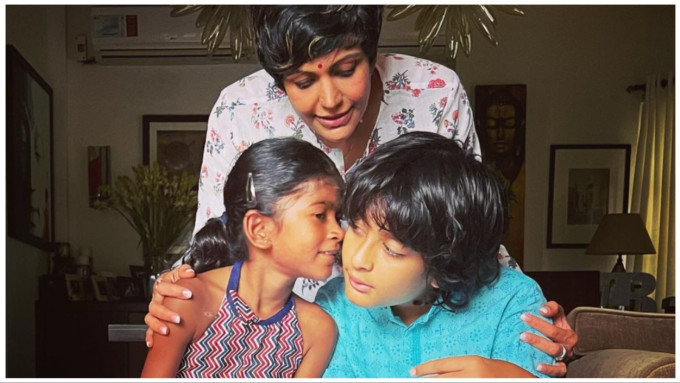Mandira Bedi talks about not connecting with newborn son: Know the warning signs of postpartum depression
Mandira Bedi candidly shared her journey of motherhood, highlighting the realities often overshadowed by “romanticised” portrayals. She described the initial disconnect with her son Veer, attributing it partly to postpartum depression, a topic she felt unprepared for.
“When I first saw him, I was like, ‘What is this pasty little frog? I have to commit myself and lose my independence because of him?’ It was not love at first sight, and I had a lot of postpartum depression as well during that time, so it took me some time to feel love for him,” the actor told Humans of Bombay.
 https://images.indianexpress.com/2020/08/1x1.png
https://images.indianexpress.com/2020/08/1x1.png
Mandira said that nobody had prepared her for postpartum depression, which came as a shock to her system. “Nobody had told me about postpartum depression. I had the baby, and at that point, I was not feeling very connected to him. The moment I would come back home, I would just be crying, and my doctors told me that the hormones are all over the place and it happens,” she shared, adding that her husband was extremely supportive at the time.
She added, “The fact that I was so horribly overweight and I couldn’t exercise, and now my independence is gone because I have this little thing that I have to look after…” she said, and added, “Somewhere, my depression was also connected to the fact that I was not feeling good about myself, my body.”
Mandira ultimately embraced motherhood, calling it “the best thing I have ever done.” Mandira is not alone in this experience. According to Dr Pooja C Thukral, Associate Director, Department of Obstetrics and Gynecology, Cloudnine Group of Hospitals, Faridabad, postpartum depression is a serious mental health condition that can affect new mothers after childbirth.
 Identifying PPD in oneself can be challenging, as many new mothers experience some mood changes due to hormonal shift (Pic: Mandira/Instagram)
Identifying PPD in oneself can be challenging, as many new mothers experience some mood changes due to hormonal shift (Pic: Mandira/Instagram)
Warning signs of postpartum depression (PPD)
Recognising the warning signs is crucial for timely intervention and support, said Dr Thukral. Some common symptoms include:
1. Persistent Sadness or Low Mood: Feeling overwhelmingly sad, empty, or hopeless most of the time.
2. Loss of Interest: Losing interest or pleasure in activities once enjoyed, including spending time with the baby.
3. Fatigue and Exhaustion: Feeling constantly tired and lacking energy, even after resting.
4. Sleep Disturbances: Difficulty sleeping or sleeping too much, often accompanied by frequent awakenings or nightmares.
5. Appetite Changes: Significant changes in appetite, leading to weight loss or gain.
6. Feelings of Worthlessness or guilt: Experiencing intense feelings of inadequacy, guilt, or being a bad mother.
7. Difficulty Bonding with the Baby: Struggling to connect with or feel love for the baby.
8. Anxiety and Panic Attacks: Experiencing severe anxiety, restlessness, or panic attacks.
9. Irritability and Anger: Feeling unusually irritable, angry, or frustrated.
10. Thoughts of Self-Harm or Harm to the Baby: Having disturbing thoughts about self-harm or harming the baby.
 Identifying PPD in oneself can be challenging, as many new mothers experience some mood changes due to hormonal shifts, lack of sleep, and the demands of caring for a newborn. However, PPD is more intense and lasts longer than the typical “baby blues,” noted Dr Thukral.
Identifying PPD in oneself can be challenging, as many new mothers experience some mood changes due to hormonal shifts, lack of sleep, and the demands of caring for a newborn. However, PPD is more intense and lasts longer than the typical “baby blues,” noted Dr Thukral.
Addressing postpartum depression promptly with appropriate support can significantly improve outcomes for both the mother and the baby. Recognising the signs, understanding the condition, and providing compassionate support are key steps in helping those affected.
Disclaimer: The copyright of this article belongs to the original author. Reposting this article is solely for the purpose of information dissemination and does not constitute any investment advice. If there is any infringement, please contact us immediately. We will make corrections or deletions as necessary. Thank you.

